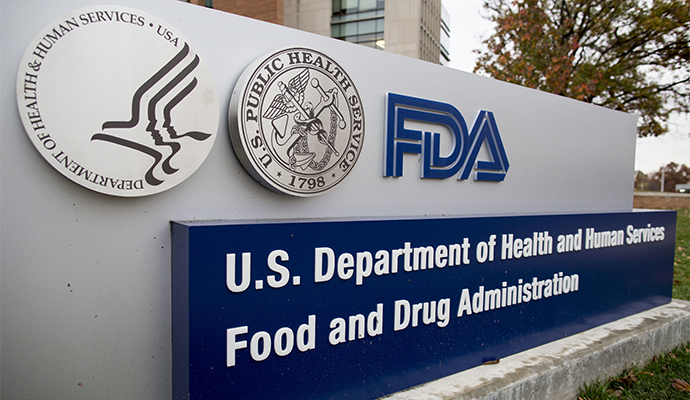Rare Disease Drug from Alnylam Gets FDA Approval
The FDA approval means providers can use the rare disease drug Oxlumo in pediatric and adult patients with primary hyperoxaluria type 1, which causes recurrent kidney stones and loss of kidney function.

Source: Thinkstock
- FDA recently approved Alnylam Pharmaceutical’s rare disease drug Oxlumo (lumasiran) for the treatment of primary hyperoxaluria type 1 (PH1).
Oxlumo is now the first approved targeted therapeutic that works to reduce oxalate production in patients living with PH1, a rare genetic disease.
Primary hyperoxalurias are caused by excess production of oxalate, a substance consumed in food and produced by the body. PH1 causes recurrent kidney stones and loss of kidney function.
Generally, these issues lead to kidney failure and the need for dialysis. And as kidney function worsens, oxalate can begin to damage other organs, such as the heart, bones and eyes, FDA explained.
“The approval of Oxlumo represents a great triumph of community involvement to address a rare disease. It is a result of input from patients, treating physicians, experts and sponsors at a patient-focused drug development meeting and through other collaborative efforts,” Norman Stockbridge, MD, PhD, director of the division of cardiology and nephrology in the FDA’s Center for Drug Evaluation and Research, said in the agency’s announcement.
PH1 affects nearly one to three individuals per million in North America and Europe. And eight out of 10 kidney stones are calcium oxalate stones, according to the National Kidney Foundation.
The approval of Oxlumo was based on two studies of patients with PH1. The first trial was a randomized, placebo-controlled trial evaluating patients six years and older.
In the trial, 26 patients received a monthly injection of Oxlumo followed by a maintenance dose every three months, while 13 received placebo injections. The primary endpoint was the amount of oxalate measured in the urine over a 24-hour period.
Researchers found that patients taking Oxlumo had a 65 percent reduction of oxalate in the urine, compared to an average 12 percent reduction in the placebo group. Six months after the study ended, 52 percent of patients in the Oxlumo group reached a normal 24-hour urinary oxalate level, researchers stated.
In contrast, no patients treated with the placebo reported the same.
In the second study, 16 patients younger than six years old received Oxlumo. The study showed an average 71 percent reduction in urinary oxalate by the sixth month of the study.
Overall, the most common side effects of the drug were minor, including side reaction and abdominal pain.
FDA stated that the approval of Oxlumo came from a combination of the work done by experts and community members coordinated by the Oxalosis & Hyperoxaluria Foundation and the Kidney Health Initiative.
Because Oxlumo is intended for both pediatric and adult patients and is dosed by weight, cost may significantly vary for each individual patient.
After the FDA’s announcement last week, Alnylam announced that it conducted a newly structured value-based agreement system to addresses payer concerns for budget predictability and value. Express Scripts, Harvard Pilgrim, and Highmark all agreed to participate in the system.
The Patient Need Adjustment (PNA) system will allow payers to qualify for the PNA rebate if the average number of vials exceeds an established threshold. This gives payers short-term and long-term predictability.
Overall, this initiative will boost access for people diagnosed with PH1.
“With an expanding number of medicines being approved for rare and ultra-rare diseases, payers and plans face the increasingly difficult task of predicting costs for therapies while establishing coverage for patients in need. The Patient Need Adjustment is a responsible and very welcome model to address certain payer challenges, creating a solution that mitigates cost risks associated with ultra-rare medicines administered across a broad range of patient age groups,” Steve Miller, MD, chief medical officer at Cigna Express Scripts, said in the announcement last week.
“We are focused on ensuring that our members have access to effective therapies, including increasingly available rare and ultra-rare disease therapies, while addressing costs,” he concluded.
